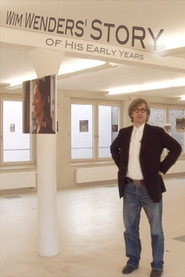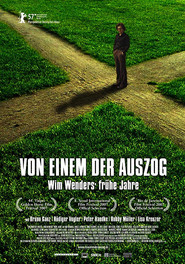Marcel Wehn
DirectorWriter
-
Birthday
-
Zodiac Sign
-
Genres
0
Total Films
Also known as (male)
Place of Birth
-
Birthday
-
Zodiac Sign
-
Genres
0
Total Films
-
Also Known As (male)
-
Place of Birth
-
Birthday
-
Zodiac Sign
-
Genres
0
Total Films
Also known as (male)
Place of Birth
-
Birthday
-
Zodiac Sign
-
Genres
0
Total Films
-
Also Known As (male)
-
Place of Birth
actor
0 Works
producer
0 Works
director
6 Works
writer
2 Works
other
0 Works

Ein Hells Angel unter Brüdern
Lutz schelhorn is an artist and photographer. He also happens to be the president of the Stuttgart hells angels charter.Year:
2015

Ein Hells Angel unter Brüdern
Lutz schelhorn is an artist and photographer. He also happens to be the president of the Stuttgart hells angels charter.Year:
2015

Der Berührbare - Der Filmregisseur Oskar Röhler
The "Enfant terrible", the scandalous person, the hope of the German cinema, the new Fassbinder. The director, author and autodidact Oskar Roehler separates the opinions. The actrice Hannelore Elsner even describes him as genius and monster. Roehler got his breakthrough with the film "No place to go", who was celebrated enthusiastically by its audience and critics.Year:
2013

Der Berührbare - Der Filmregisseur Oskar Röhler
The "Enfant terrible", the scandalous person, the hope of the German cinema, the new Fassbinder. The director, author and autodidact Oskar Roehler separates the opinions. The actrice Hannelore Elsner even describes him as genius and monster. Roehler got his breakthrough with the film "No place to go", who was celebrated enthusiastically by its audience and critics.Year:
2013

Wim Wenders' Story Of His Early Years
In intimate conversations Wim Wenders talks about his sheltered upbringing in post-war Germany. The film follows him on a journey into the past that takes him to Paris, where he lived as a young painter and made his decision to become a filmmaker.Year:
2008

One Who Set Forth: Wim Wenders' Early Years
The early films of Wim Wenders are now regarded as landmarks of European film. Alice in the Cities, Wrong Move and Kings of the Road became foundations of the German New Wave and cemented the reputation of their director. In One Who Set Forth: Wim Wenders' Early Years Marcel Wehn explores the background to these films. Through personal recollection and rare home movie footage, it documents the director's early life, from experiments with his first camera, via his deviation from a career in medicine in favour of art and film, through to international recognition for the Road Trilogy. Central to these were themes that became cornerstones of all his work: national identity, the importance of personal relationships and the allure of the road. With contributions from the director and the many collaborators who helped define his vision, One Who Set Forth is a compelling account of Wim Wenders' life and work.Year:
2008